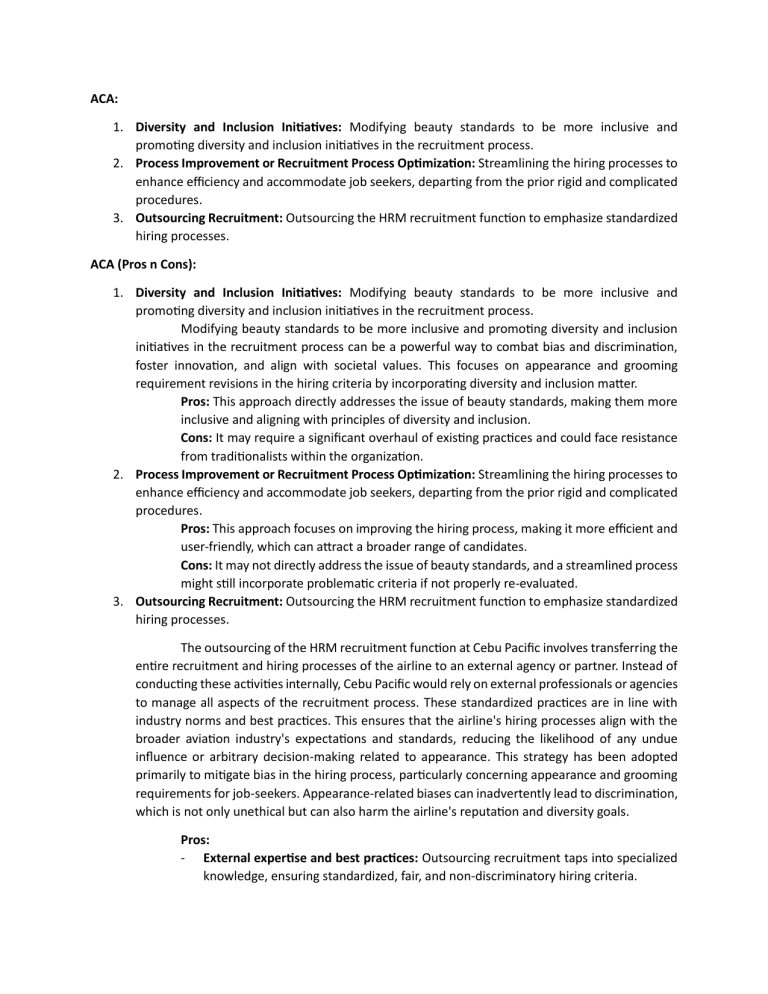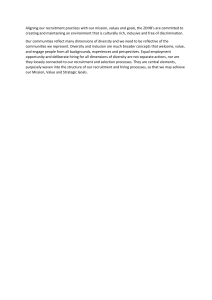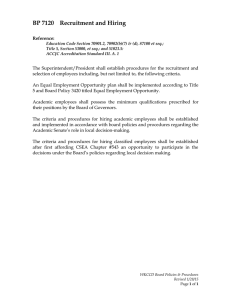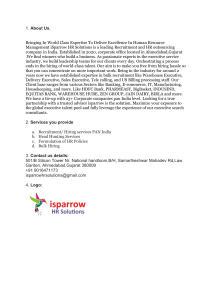
ACA: 1. Diversity and Inclusion Initiatives: Modifying beauty standards to be more inclusive and promoting diversity and inclusion initiatives in the recruitment process. 2. Process Improvement or Recruitment Process Optimization: Streamlining the hiring processes to enhance efficiency and accommodate job seekers, departing from the prior rigid and complicated procedures. 3. Outsourcing Recruitment: Outsourcing the HRM recruitment function to emphasize standardized hiring processes. ACA (Pros n Cons): 1. Diversity and Inclusion Initiatives: Modifying beauty standards to be more inclusive and promoting diversity and inclusion initiatives in the recruitment process. Modifying beauty standards to be more inclusive and promoting diversity and inclusion initiatives in the recruitment process can be a powerful way to combat bias and discrimination, foster innovation, and align with societal values. This focuses on appearance and grooming requirement revisions in the hiring criteria by incorporating diversity and inclusion matter. Pros: This approach directly addresses the issue of beauty standards, making them more inclusive and aligning with principles of diversity and inclusion. Cons: It may require a significant overhaul of existing practices and could face resistance from traditionalists within the organization. 2. Process Improvement or Recruitment Process Optimization: Streamlining the hiring processes to enhance efficiency and accommodate job seekers, departing from the prior rigid and complicated procedures. Pros: This approach focuses on improving the hiring process, making it more efficient and user-friendly, which can attract a broader range of candidates. Cons: It may not directly address the issue of beauty standards, and a streamlined process might still incorporate problematic criteria if not properly re-evaluated. 3. Outsourcing Recruitment: Outsourcing the HRM recruitment function to emphasize standardized hiring processes. The outsourcing of the HRM recruitment function at Cebu Pacific involves transferring the entire recruitment and hiring processes of the airline to an external agency or partner. Instead of conducting these activities internally, Cebu Pacific would rely on external professionals or agencies to manage all aspects of the recruitment process. These standardized practices are in line with industry norms and best practices. This ensures that the airline's hiring processes align with the broader aviation industry's expectations and standards, reducing the likelihood of any undue influence or arbitrary decision-making related to appearance. This strategy has been adopted primarily to mitigate bias in the hiring process, particularly concerning appearance and grooming requirements for job-seekers. Appearance-related biases can inadvertently lead to discrimination, which is not only unethical but can also harm the airline's reputation and diversity goals. Pros: - External expertise and best practices: Outsourcing recruitment taps into specialized knowledge, ensuring standardized, fair, and non-discriminatory hiring criteria. - - Access to industry expertise/standardized hiring practices: External agencies offer insights into industry trends, best practices, and up-to-date recruitment strategies, providing fresh perspectives. Cost savings: Outsourcing can lower overall hiring costs through economies of scale and efficient operations by external agencies. Cons: - Loss of Direct Control: Outsourcing recruitment may result in reduced control over candidate sourcing, evaluation criteria, and candidate experience, potentially affecting the hiring process. - Confidentiality Concerns: Sharing sensitive information with an external partner poses security and confidentiality risks, necessitating robust data protection and confidentiality protocols. - Partner Selection: Selecting the right outsourcing partner is crucial to avoid damage to the company's reputation. Due diligence in partner selection is necessary to ensure alignment with values and standards. - Communication Challenges: Effective communication between the airline and the outsourcing partner is essential to ensure goal alignment, expectations, and performance standards. Poor communication can lead to suboptimal results.


